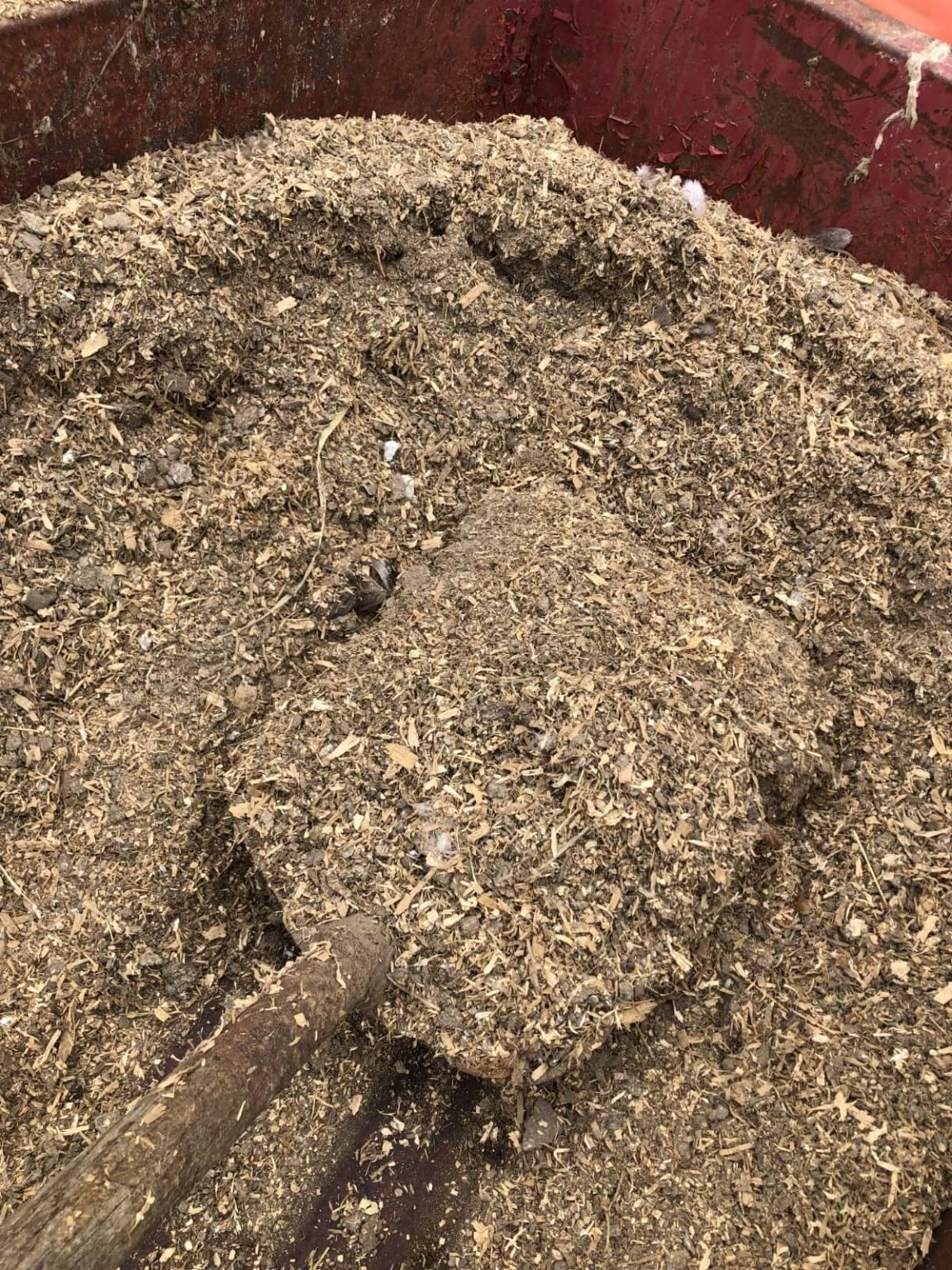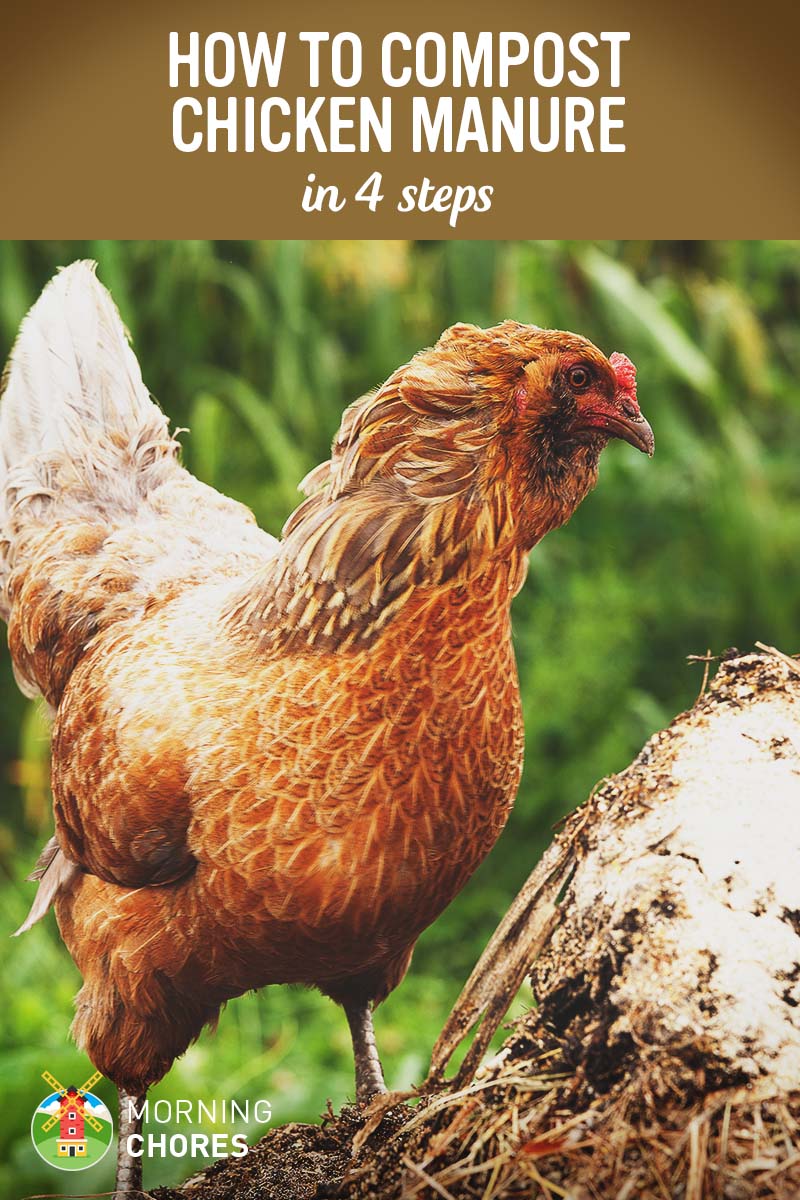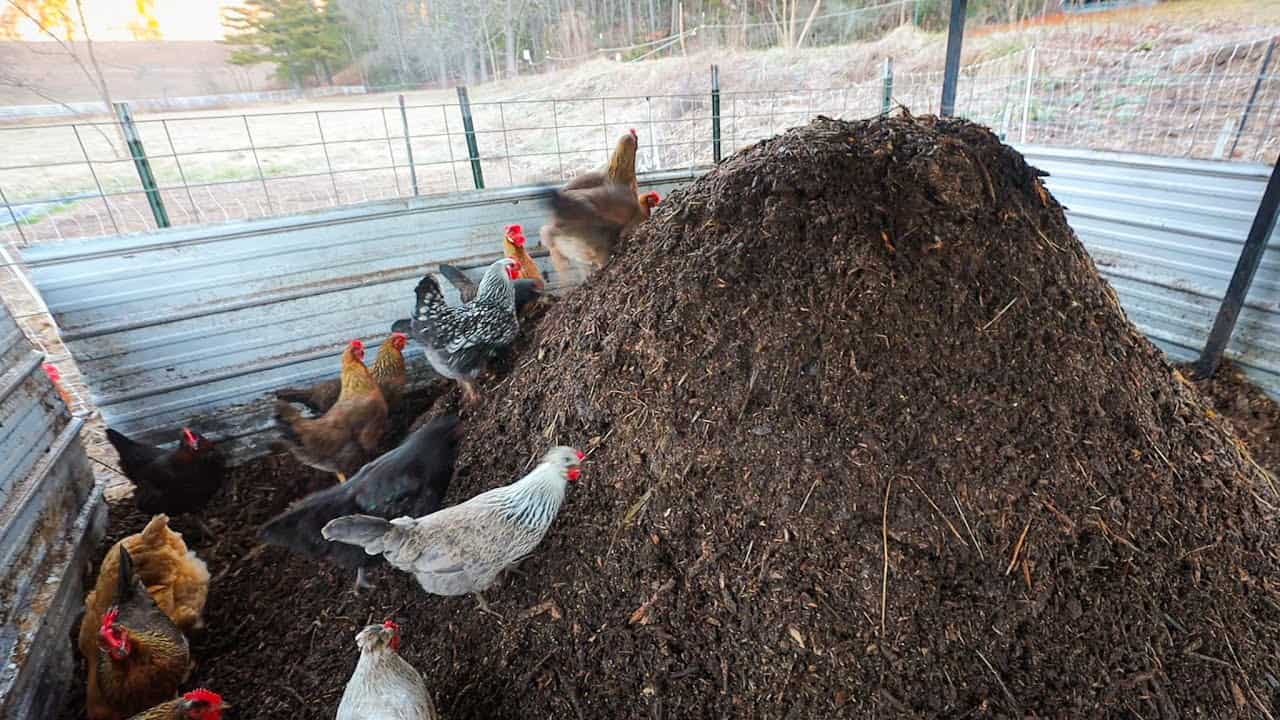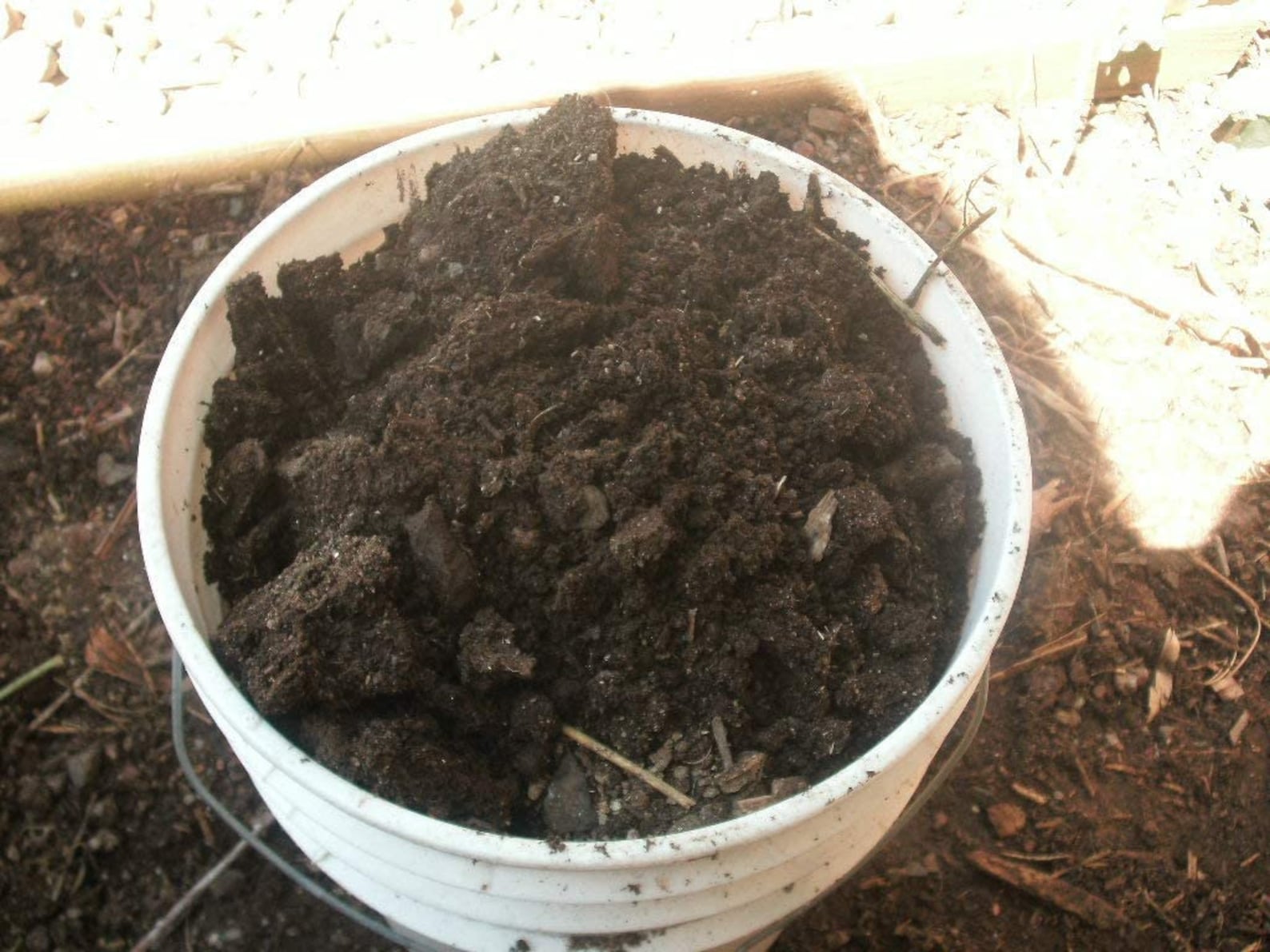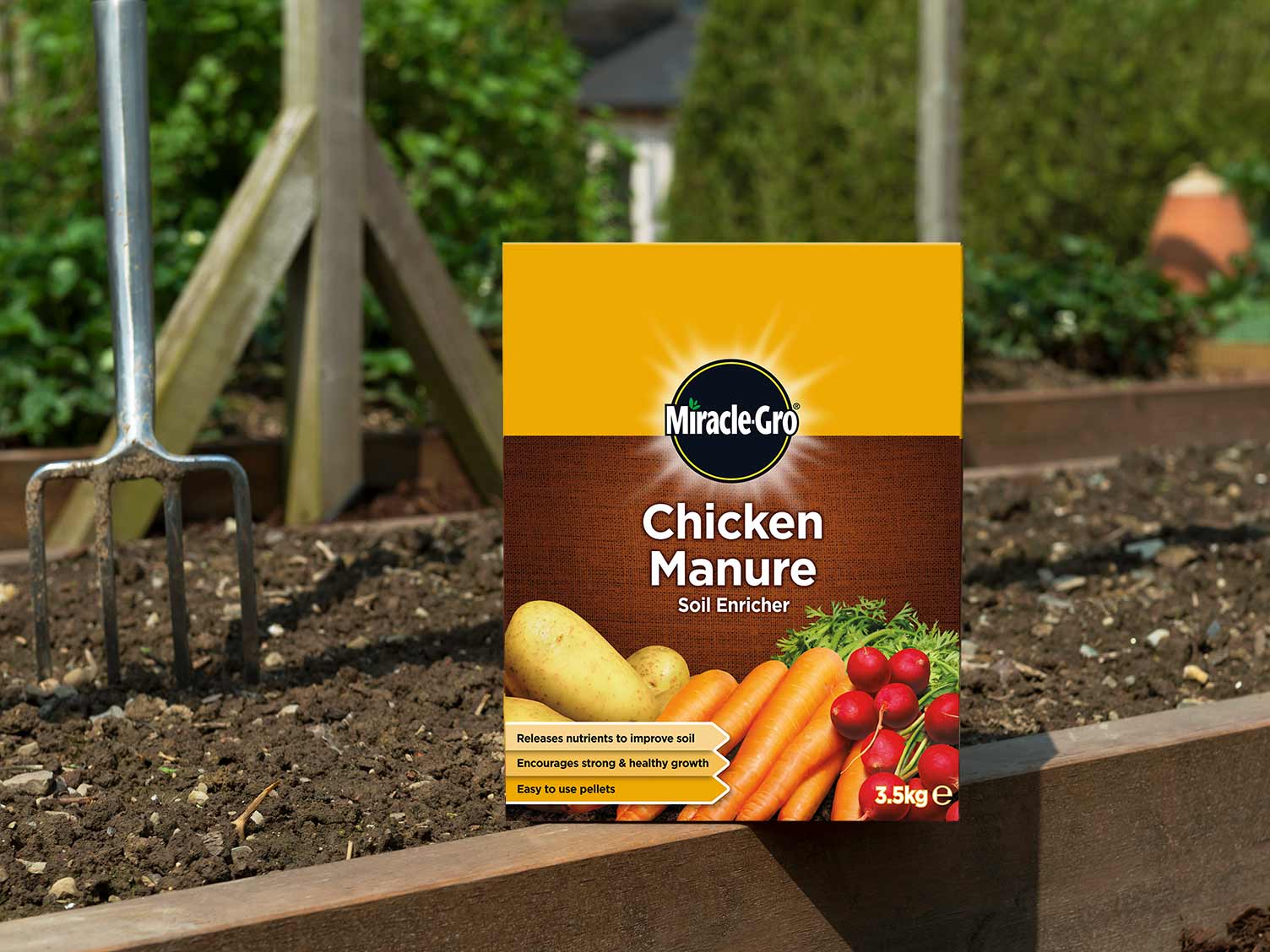Unlocking the Power of Chicken Manure for a Thriving Garden
As gardeners, we’re constantly seeking innovative and sustainable ways to nourish our gardens. One often-overlooked yet highly effective natural fertilizer is chicken manure. But is chicken manure good for a garden? The answer is a resounding yes. Chicken manure is a nutrient-rich soil amendment that can improve soil structure, increase crop yields, and support sustainable gardening practices.
Chicken manure is an excellent source of essential macronutrients like nitrogen, phosphorus, and potassium, which are vital for plant growth. These nutrients promote healthy root development, leaf growth, and fruit production, making chicken manure an ideal fertilizer for a wide range of crops. Additionally, chicken manure contains micronutrients like calcium, magnesium, and sulfur, which are essential for maintaining soil health and supporting beneficial microbial activity.
Using chicken manure as a fertilizer can also help reduce waste and minimize environmental impact. Chicken manure is a readily available resource that would otherwise be discarded, making it an attractive option for gardeners looking to reduce their carbon footprint. By harnessing the power of chicken manure, gardeners can create a more sustainable and self-sufficient gardening system.
Furthermore, chicken manure can help improve soil structure, increasing its water-holding capacity and aeration. This leads to healthier root systems, better drainage, and a reduced need for synthetic fertilizers. By incorporating chicken manure into their gardening routine, gardeners can create a more resilient and productive garden ecosystem.
Incorporating chicken manure into your gardening routine is a simple and effective way to promote sustainable gardening practices. By using this natural fertilizer, you can reduce your reliance on synthetic fertilizers, minimize waste, and create a healthier, more productive garden. So, is chicken manure good for a garden? The answer is clear: it’s a valuable resource that can help you unlock the full potential of your garden.
How to Use Chicken Manure as a Fertilizer for Optimal Results
Using chicken manure as a fertilizer can be a highly effective way to promote healthy plant growth and improve soil structure. However, it’s essential to use it correctly to avoid contamination and odors. Here’s a step-by-step guide on how to use chicken manure as a fertilizer for optimal results.
Step 1: Composting Chicken Manure
Composting chicken manure is crucial to kill off any pathogens and break down the nutrients into a usable form. To compost chicken manure, mix it with other organic materials like straw or sawdust, and maintain a carbon-to-nitrogen ratio of 20:1. Keep the compost pile moist and turn it regularly to ensure aerobic decomposition.
Step 2: Determining Application Rates
The application rate of chicken manure depends on the type of plants, soil type, and climate. As a general rule, apply 1-2 pounds of composted chicken manure per 10 square feet of garden bed. For seedlings, start with a lower application rate of 0.5-1 pound per 10 square feet and gradually increase as the plants grow.
Step 3: Timing of Application
The timing of application is critical to ensure optimal results. Apply chicken manure in the early growing season, typically in spring or early summer, when plants are actively growing. Avoid applying chicken manure during the dormant season or when plants are under stress.
Step 4: Proper Handling and Storage
Proper handling and storage of chicken manure are essential to avoid contamination and odors. Store chicken manure in a well-ventilated area, away from direct sunlight and moisture. Wear gloves and a mask when handling chicken manure to minimize the risk of exposure to pathogens.
By following these steps, gardeners can harness the power of chicken manure to create a thriving and sustainable garden ecosystem. Remember, using chicken manure as a fertilizer is a long-term investment in soil health, and with proper use, it can provide numerous benefits for years to come.
The Nutritional Benefits of Chicken Manure for Plants
Chicken manure is a nutrient-rich soil amendment that provides essential macronutrients and micronutrients for plant growth. The nutritional composition of chicken manure is complex and varied, but it is generally high in nitrogen, phosphorus, and potassium. These macronutrients are vital for plant development and play a critical role in promoting healthy growth and productivity.
Nitrogen is a key component of amino acids, which are the building blocks of proteins. Plants use nitrogen to produce enzymes, hormones, and other biomolecules that regulate growth and development. Chicken manure is an excellent source of nitrogen, with a typical nitrogen content of 1.5-2.5%. This makes it an ideal fertilizer for plants that require high levels of nitrogen, such as leafy greens and fruiting crops.
Phosphorus is another essential macronutrient that plays a critical role in plant development. It is involved in the formation of ATP, the energy currency of the cell, and is necessary for the production of nucleic acids and phospholipids. Chicken manure is a good source of phosphorus, with a typical phosphorus content of 1-2%. This makes it an excellent fertilizer for plants that require high levels of phosphorus, such as root crops and flowering plants.
Potassium is the third major macronutrient found in chicken manure. It plays a critical role in maintaining cell turgor pressure and is involved in the regulation of stomatal opening and closing. Chicken manure is a good source of potassium, with a typical potassium content of 1-2%. This makes it an excellent fertilizer for plants that require high levels of potassium, such as fruiting crops and tubers.
In addition to these macronutrients, chicken manure also contains a range of micronutrients, including calcium, magnesium, and sulfur. These micronutrients are essential for plant growth and development, and are often lacking in synthetic fertilizers. By using chicken manure as a fertilizer, gardeners can provide their plants with a complete and balanced diet of nutrients, promoting healthy growth and productivity.
Overall, the nutritional benefits of chicken manure make it an excellent fertilizer for gardeners looking to promote healthy plant growth and productivity. By understanding the nutritional composition of chicken manure, gardeners can use it to create a balanced and sustainable gardening system that meets the needs of their plants.
Comparing Chicken Manure to Other Organic Fertilizers
While chicken manure is an excellent organic fertilizer, it’s not the only option available to gardeners. Other popular organic fertilizers include cow manure, compost, and worm castings. Each of these fertilizers has its own unique benefits and drawbacks, and some may be better suited to specific gardening needs.
Cow manure, for example, is a good source of nitrogen and phosphorus, but it can be high in potassium, which may not be suitable for all plants. Compost, on the other hand, is a broad-spectrum fertilizer that provides a range of nutrients, but it can be slow to release and may not provide the same level of nitrogen as chicken manure. Worm castings, also known as vermicompost, are a nutrient-rich fertilizer produced by worms as they break down organic matter. They are high in nitrogen and phosphorus, but can be expensive and may not be widely available.
Chicken manure, however, has several unique advantages that make it an attractive option for gardeners. It is high in nitrogen, phosphorus, and potassium, making it a well-balanced fertilizer. It is also relatively inexpensive and widely available, making it a cost-effective option for gardeners. Additionally, chicken manure can be composted and used as a natural pest control agent, reducing the need for synthetic pesticides.
One of the key benefits of using chicken manure as a fertilizer is its ability to improve soil structure. The high levels of organic matter in chicken manure help to increase the soil’s water-holding capacity, reduce erosion, and promote healthy microbial activity. This makes it an excellent option for gardeners looking to improve soil health and reduce their environmental impact.
Another advantage of using chicken manure is its versatility. It can be used as a standalone fertilizer, or it can be combined with other organic fertilizers to create a customized fertilizer blend. This makes it an excellent option for gardeners who want to create a tailored fertilizer program that meets the specific needs of their plants.
Overall, while there are many organic fertilizers available to gardeners, chicken manure is a unique and valuable option that offers a range of benefits. Its high levels of nitrogen, phosphorus, and potassium make it a well-balanced fertilizer, and its ability to improve soil structure and promote healthy microbial activity make it an excellent option for gardeners looking to create a sustainable and thriving garden ecosystem.
Addressing Concerns about Pathogens and Contamination
One of the most common concerns about using chicken manure as a fertilizer is the risk of pathogens and contamination. However, with proper composting and handling, these risks can be minimized and even eliminated. In fact, composting chicken manure is a natural process that kills off pathogens and weed seeds, making it a safe and healthy fertilizer for gardens.
The key to minimizing the risk of pathogens and contamination is to compost the chicken manure properly. This involves mixing the manure with other organic materials, such as straw or sawdust, and maintaining a carbon-to-nitrogen ratio of 20:1. The compost pile should also be kept moist and turned regularly to ensure aerobic decomposition.
Another concern about using chicken manure as a fertilizer is the risk of contamination from heavy metals and other pollutants. However, studies have shown that chicken manure is generally low in heavy metals and other pollutants, making it a safe choice for gardens.
In addition to proper composting and handling, there are also steps that gardeners can take to minimize the risk of pathogens and contamination when using chicken manure as a fertilizer. These include:
- Wearing gloves and a mask when handling chicken manure to minimize exposure to pathogens.
- Keeping the compost pile covered to prevent contamination from weed seeds and other debris.
- Turning the compost pile regularly to ensure aerobic decomposition and minimize the risk of anaerobic pathogens.
- Testing the compost for pathogens and contaminants before using it as a fertilizer.
By following these steps and taking the necessary precautions, gardeners can minimize the risk of pathogens and contamination when using chicken manure as a fertilizer. This makes it a safe and healthy choice for gardens, and a valuable tool for creating a sustainable and thriving garden ecosystem.
In fact, many gardeners have successfully used chicken manure as a fertilizer without experiencing any problems with pathogens or contamination. With proper composting and handling, chicken manure can be a valuable addition to any garden, providing essential nutrients and improving soil health.
Real-Life Examples of Successful Chicken Manure Fertilization
Many gardeners have successfully used chicken manure as a fertilizer, and the results are impressive. Here are a few real-life examples of gardeners who have used chicken manure to improve their soil health and increase their crop yields.
One example is a gardener in California who used chicken manure to fertilize her vegetable garden. She applied the manure at a rate of 2 pounds per 10 square feet, and within a few weeks, she noticed a significant improvement in the health and productivity of her plants. Her tomato plants were producing more fruit, and her lettuce was growing faster and stronger.
Another example is a farmer in Iowa who used chicken manure to fertilize his cornfield. He applied the manure at a rate of 5 tons per acre, and within a few months, he noticed a significant increase in his crop yields. His corn was growing taller and stronger, and he was able to harvest more ears per acre.
A third example is a gardener in New York who used chicken manure to fertilize her flower garden. She applied the manure at a rate of 1 pound per 5 square feet, and within a few weeks, she noticed a significant improvement in the health and beauty of her flowers. Her roses were blooming more profusely, and her daisies were growing taller and stronger.
These examples demonstrate the effectiveness of chicken manure as a fertilizer, and they highlight the benefits of using this natural and sustainable gardening practice. By using chicken manure, gardeners can improve their soil health, increase their crop yields, and reduce their environmental impact.
In addition to these examples, there are many other gardeners and farmers who have successfully used chicken manure as a fertilizer. They have reported similar benefits, including improved soil health, increased crop yields, and reduced environmental impact.
Overall, the use of chicken manure as a fertilizer is a valuable and sustainable gardening practice that can benefit gardeners and farmers of all levels. By using this natural and effective fertilizer, gardeners can create a healthy and thriving garden ecosystem that produces abundant and nutritious crops.
Common Mistakes to Avoid When Using Chicken Manure
While chicken manure can be a valuable fertilizer for gardens, there are some common mistakes to avoid when using it. Here are some tips to help you use chicken manure safely and effectively:
Over-application: One of the most common mistakes gardeners make when using chicken manure is over-applying it. This can lead to an overabundance of nutrients in the soil, which can harm plants and the environment. To avoid this, make sure to follow the recommended application rates and start with a small amount to test the soil’s response.
Improper handling: Chicken manure can be a breeding ground for pathogens and bacteria, so it’s essential to handle it properly. Make sure to wear gloves and a mask when handling chicken manure, and wash your hands thoroughly after use.
Not composting: Chicken manure is a raw material that needs to be composted before it can be used as a fertilizer. Not composting chicken manure can lead to the presence of pathogens and bacteria in the soil, which can harm plants and the environment. To avoid this, make sure to compost chicken manure properly before using it as a fertilizer.
Not testing the soil: Before using chicken manure as a fertilizer, it’s essential to test the soil to determine its nutrient content and pH level. This will help you determine the right amount of chicken manure to apply and avoid over-fertilizing.
Not considering the type of plants: Different plants have different nutrient requirements, so it’s essential to consider the type of plants you are growing when using chicken manure as a fertilizer. For example, some plants may require more nitrogen, while others may require more phosphorus.
By avoiding these common mistakes, you can use chicken manure safely and effectively to improve the health and productivity of your garden. Remember to always follow the recommended application rates, handle the manure properly, and test the soil before use.
Conclusion: Harnessing the Power of Chicken Manure for a Sustainable Garden
In conclusion, chicken manure is a valuable and sustainable fertilizer that can play a significant role in creating a healthy and thriving garden ecosystem. By using chicken manure as a fertilizer, gardeners can improve soil structure, increase crop yields, and support sustainable gardening practices.
As we have discussed throughout this article, chicken manure is a nutrient-rich soil amendment that provides essential macronutrients and micronutrients for plant growth. It is also a natural and renewable resource that can be used in combination with other organic fertilizers to create a balanced and sustainable fertilizer program.
However, it is essential to use chicken manure safely and effectively to avoid common mistakes such as over-application or improper handling. By following the best practices outlined in this article, gardeners can harness the power of chicken manure to create a healthy and thriving garden ecosystem.
In addition to its many benefits, chicken manure is also an environmentally friendly fertilizer option. It reduces the need for synthetic fertilizers, which can harm the environment and contaminate soil and water. By using chicken manure as a fertilizer, gardeners can reduce their environmental impact and create a more sustainable gardening practice.
Overall, chicken manure is a valuable and sustainable fertilizer that can play a significant role in creating a healthy and thriving garden ecosystem. By using chicken manure safely and effectively, gardeners can improve soil structure, increase crop yields, and support sustainable gardening practices.
So, is chicken manure good for a garden? The answer is a resounding yes. With its many benefits and environmentally friendly properties, chicken manure is an excellent fertilizer option for gardeners of all levels. By harnessing the power of chicken manure, gardeners can create a healthy and thriving garden ecosystem that will provide them with years of enjoyment and productivity.



